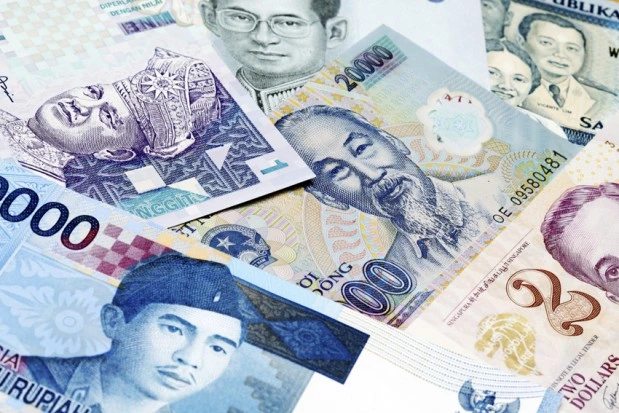Asian currencies such as the yen, won, and baht have reached yearly lows amid rising local and global interest rates.
On Wednesday, these currencies plummeted against the U.S. dollar. This decline happens as the U.S. Federal Reserve FED hints at more rate hikes.
Specifically, the yen hovers at about 149 to a dollar. This rate is close to its 11-month low. The won and the baht have sunk to 10-month lows.
Rates stand at 1354.6 and 36.5 against the dollar, respectively.
Asian banks did raise interest rates last year. However, rates have remained steady through 2023. Banks had hoped earlier hikes would control inflation.

Meanwhile, the U.S. Federal Reserve maintains a 22-year high in rates. They also suggest more increases ahead.
Japan’s central bank governor, Kazuo Ueda, made dovish remarks recently. He assures an ultra-accommodative monetary policy will continue.
Finance Minister Shunichi Suzuki did issue a warning. Yet, markets largely brushed it aside. Experts now watch for potential interventions by Japan’s central bank.
Ueda’s comments show a sense of ongoing global uncertainty. Some even predict certain Asian banks will soon ease their policies.
The Asian Development Bank just lowered its 2023 growth forecast for the region to 4.7%.
Additionally, the Chinese yuan dropped to 7.34 per dollar earlier this month. Currently,
it trades near that low at 7.30. Nomura economists suggest the Bank of Korea will cut rates in January. Capital Economics also paints a gloomy picture for emerging Asia.
In conclusion, rising interest rates are putting a strain on Asian currencies.
While it’s unclear if they’ll rebound soon, experts think some central banks may ease policies to provide relief.

